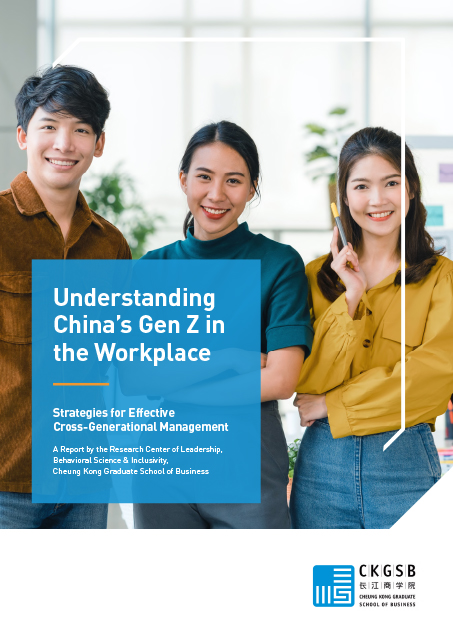

Notably, Gen Z founders, CEOs, and senior executives, and those with higher levels of education, tend to show greater anxiety and depression, along with lower levels of resilience in the workplace.
Additionally, the report identifies key incentives to retain Gen Z employees. Income and promotions emerge as a crucial concern, with over half (54%) of respondents indicating their willingness to resign after a year without a pay raise. Furthermore, a greater proportion of respondents (66%) expressed their intention to resign after two years in the absence of a promotion.
With Gen Z set to become the largest demographic group in China’s workforce in the coming years, it is increasingly crucial to understand their preferences, motivators, and goals of Gen Z in the workplace. Forward thinking organizations recognize the need to tailor their management strategies accordingly.
Professor Zhang Xiaomeng emphasizes in the report’s introduction, “it is critical for organizations to develop management practices that are tailored to the unique needs and preferences of Gen Z in the workplace.” “The COVID-19 pandemic has caused unprecedented challenges for both corporations and employees. From the perspective of companies, there are greater difficulties in recruiting, training, and retaining a younger generation of employees due to increasingly complex internal and external factors. From an employee perspective, job opportunities have hit a 10-year low in China.”
In light of these circumstances, CKGSB aims to paint a clearer picture of the challenges faced by Gen Z employees in China’s workplace, prompting organizations to take proactive measures and devise innovative strategies to address their specific needs.
Read the report: Understanding China’s Gen Z in the Workplace: Strategies for Effective Cross-Generational Management HERE.